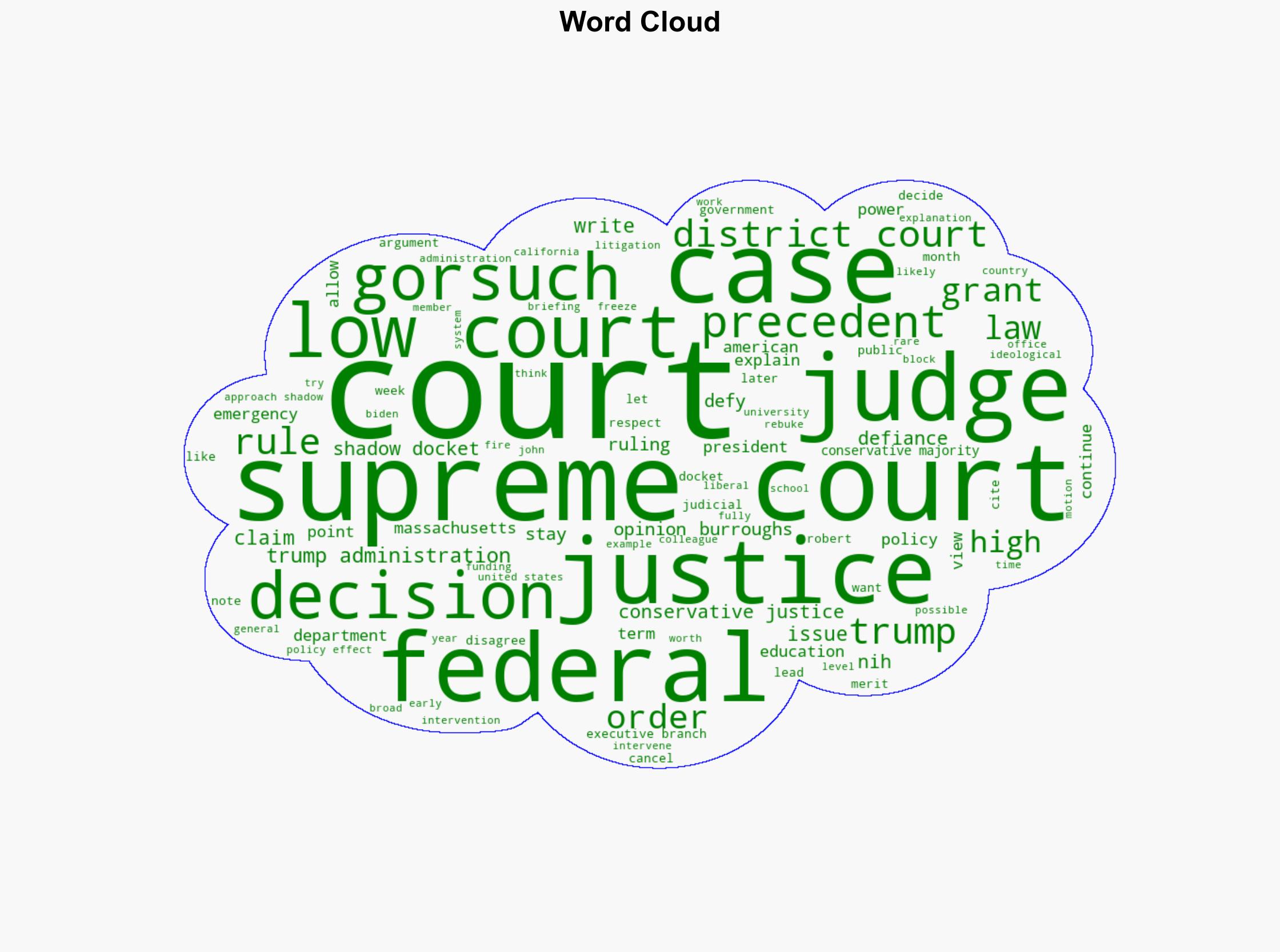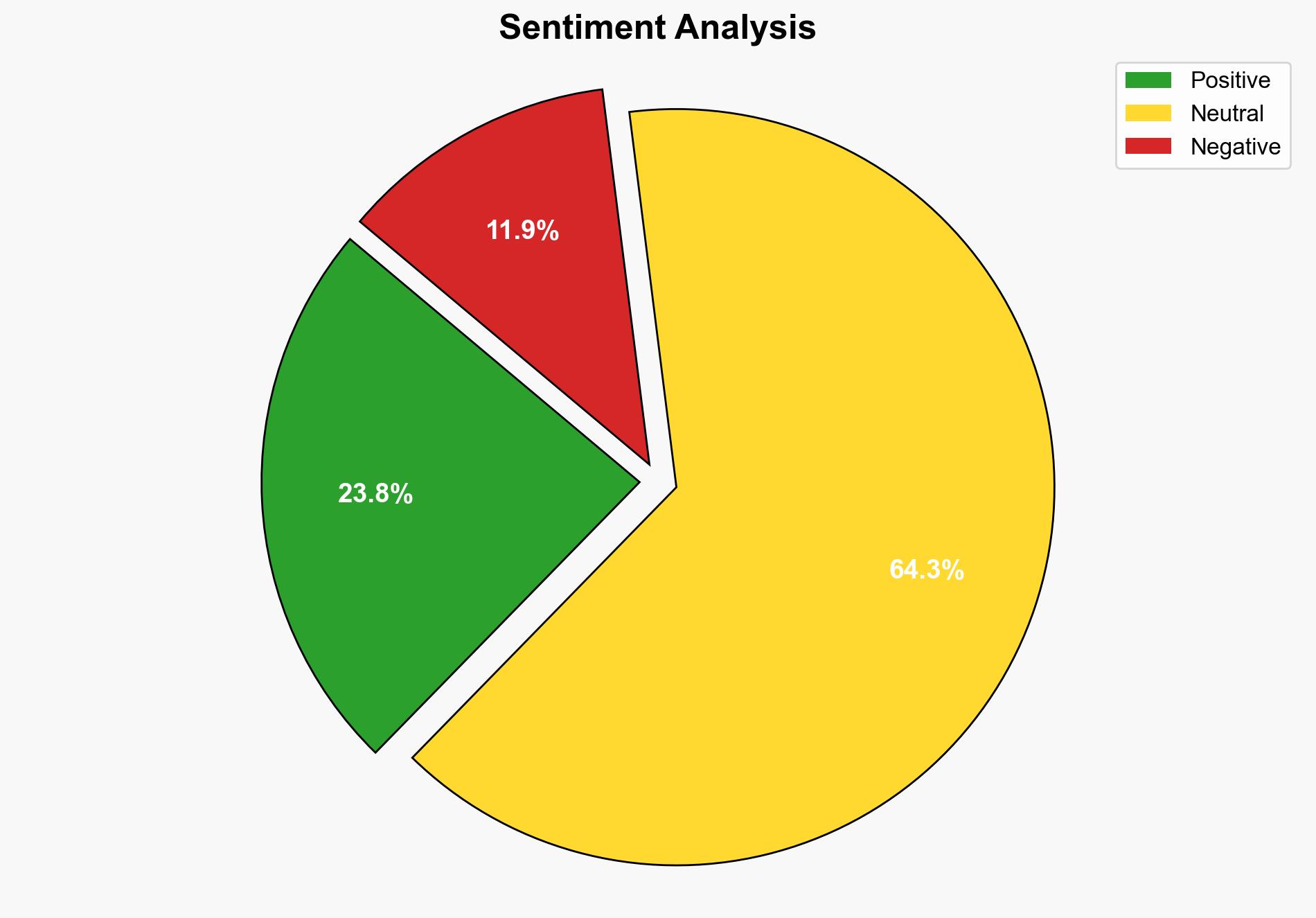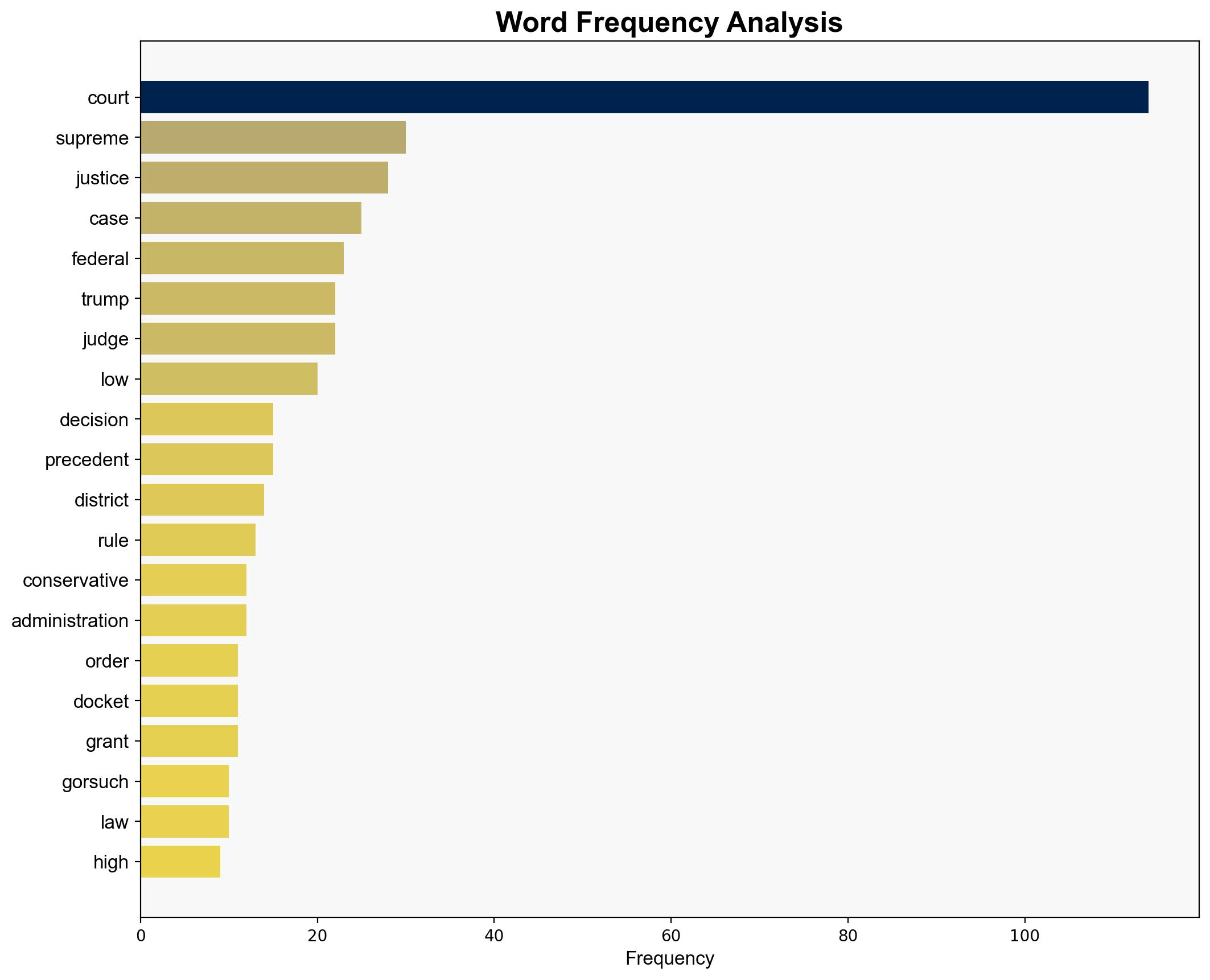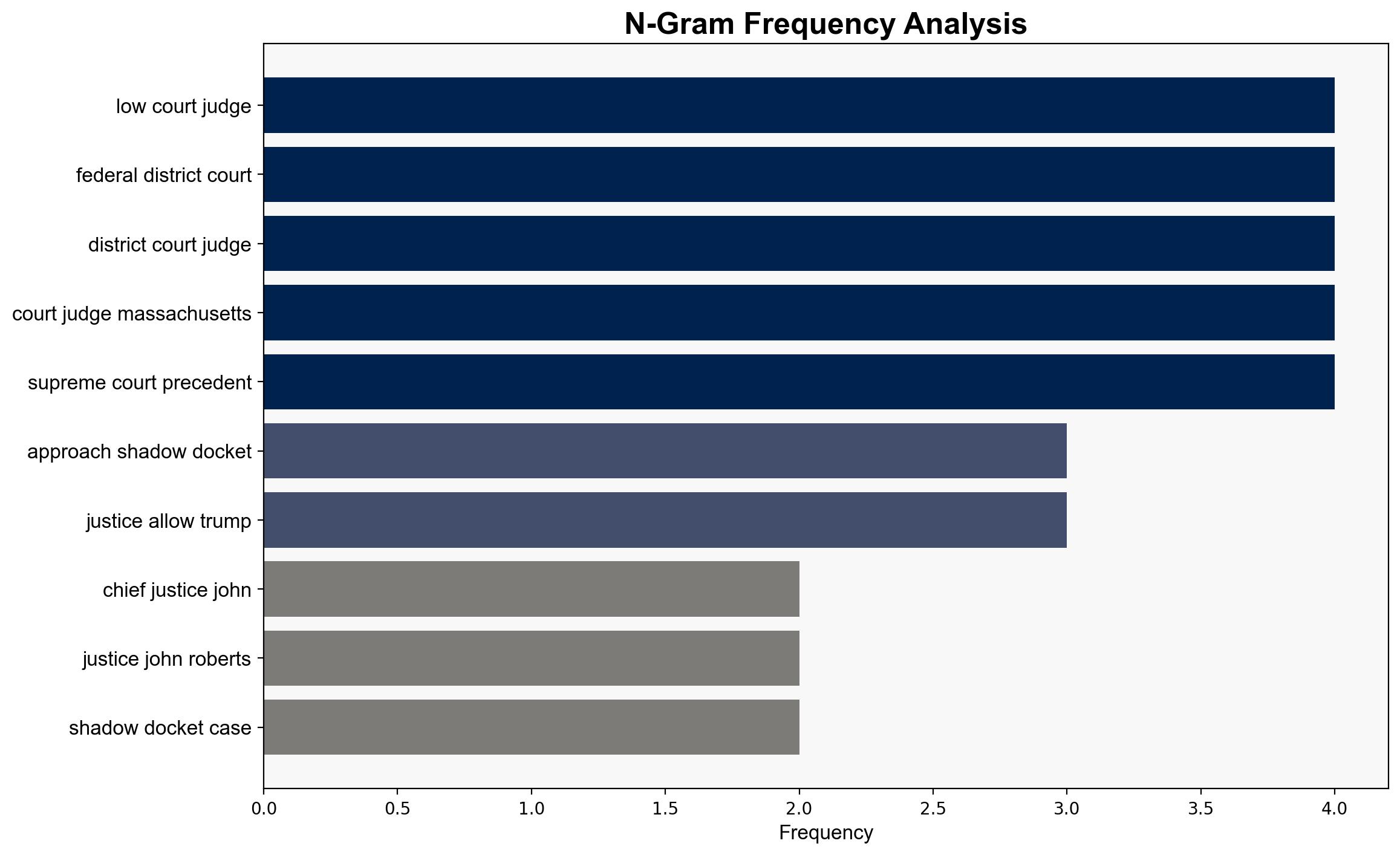Trump Has Ignited a Civil War Between the Federal Courts – The New Republic
Published on: 2025-09-07
Intelligence Report: Trump Has Ignited a Civil War Between the Federal Courts – The New Republic
1. BLUF (Bottom Line Up Front)
The federal judiciary is experiencing internal conflict, potentially undermining its role as an impartial arbiter. This division is primarily driven by differing interpretations of executive power and judicial independence. The hypothesis that the judiciary’s internal conflict is exacerbated by political polarization is better supported. Confidence level: Moderate. Recommended action: Monitor developments within the judiciary and assess potential impacts on the rule of law and democratic institutions.
2. Competing Hypotheses
1. **Hypothesis A**: The conflict within the federal courts is primarily a result of political polarization, with judges increasingly aligning with partisan ideologies rather than legal principles.
2. **Hypothesis B**: The conflict is a temporary reaction to specific policies and actions of the Trump administration, which will subside as these issues are resolved or as the administration changes.
Using the Analysis of Competing Hypotheses (ACH) 2.0, Hypothesis A is more supported. The evidence of judges openly rebuking each other and the Supreme Court’s shadow docket decisions suggests a deeper ideological divide rather than a temporary policy disagreement.
3. Key Assumptions and Red Flags
– **Assumptions**: It is assumed that judges’ decisions are influenced by political ideologies. Another assumption is that the judiciary’s internal conflict will have long-term impacts on its credibility.
– **Red Flags**: The reliance on unnamed sources and background interviews could indicate bias or incomplete information. The potential for cognitive bias exists in interpreting judicial actions as purely partisan.
4. Implications and Strategic Risks
The internal conflict within the judiciary could lead to a loss of public confidence in the judicial system, affecting its ability to function as a check on executive power. This division might embolden further executive overreach or lead to inconsistent application of the law across different jurisdictions. The risk of escalation into broader institutional distrust is significant, potentially impacting economic stability and international perceptions of U.S. governance.
5. Recommendations and Outlook
- Monitor judicial decisions and public statements for signs of increasing polarization.
- Engage with legal experts to assess the potential long-term impacts on judicial independence.
- Scenario Projections:
- Best Case: The judiciary resolves its internal conflicts, restoring public confidence.
- Worst Case: Continued polarization leads to a constitutional crisis.
- Most Likely: Ongoing tensions with periodic high-profile conflicts.
6. Key Individuals and Entities
– Donald Trump
– John Roberts
– Neil Gorsuch
– Brett Kavanaugh
– Elena Kagan
– John Sauer
7. Thematic Tags
national security threats, judicial independence, political polarization, rule of law





